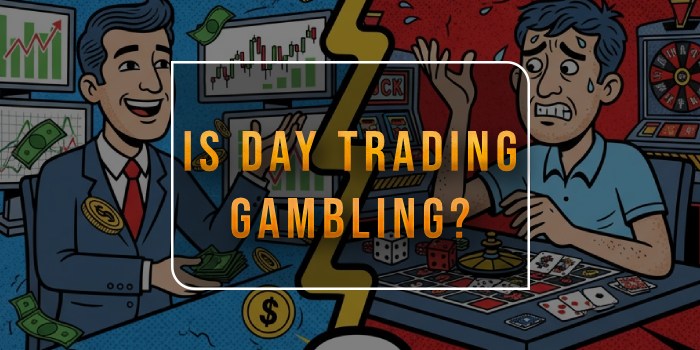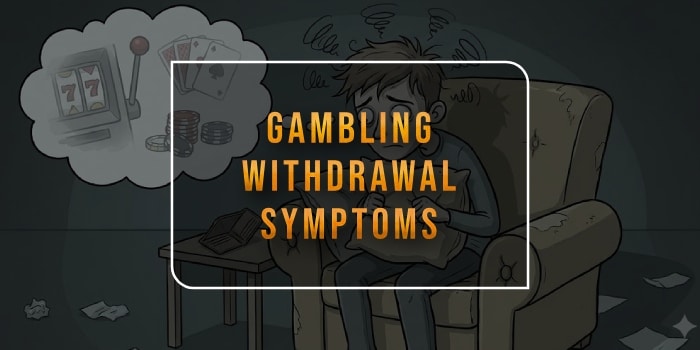- Home
- Is Day Trading Gambling?
Is Day Trading Gambling?

Warren Buffett, the Oracle of Omaha, has never been a fan of short-term investment. In fact, he has repeatedly equated it to gambling. What to make, then, of day trading? Is it gambling, or is it something that only the initiated can use as an investment strategy to turn a profit? Today, we take a look at both arguments and check where the merit lies in both.
Day Trading as Gambling: It Can Be
The issue of day trading stems not from aversion to short-term investment strategies per se, but from the too-narrow a window to be reliable. Indeed, the day trading cycles are short and often can be volatile.
Not only do you need to pick the right stock, but you also need to hope that there won’t be a major event affecting the investment, resulting in a net loss.
While long-term investment also carries risks, you are betting on the long-term value of a product that you are confident will make a change and not trying to guess whether a stock will move up or down by the end of the day.
One is a carefully thought-out strategy, whereas the other is akin to the spin of the roulette wheel, according to some. However, successful day traders do exist, and they argue against this idea. In fact, it’s argued that only 3% of day traders are actually profitable, with the rest floundering soon after they try their hand at it.
A more positive outlook is that about 20% of day traders turn a profit, whereas an investor backing S&P500 stock is usually rewarded with an average of 21-26% return.
Of course, S&P500 returns are not guaranteed, but the majority of investors who bank on long-term strategies are usually rewarded, whereas as little as 3% of day traders might be turning a profit to begin with.
Why Is Day Trading Not a Gamble?
There is a compelling argument to be made for day trading as not a form of gambling, but rather a way to make a steady profit over the long term. All day traders swear by the same thing – they have a clear strategy in mind.
However, they also point out that it is wrong to focus on a single trade or stock. Rather, it all comes down to strategy – how many trades you are going to carry at once over the day and how many of these will be carefully planned actions rather than spur-of-the-moment decisions.
A Reddit user spoke about the importance of day trading and why it is hardly a gamble, citing the theory of emergence determinism:
“This emergence allows us to have a nearly certain outcome over the long term. This is not, by definition gamble. Since we are not looking at one single trade, but the TRADING SYSTEM itself. Let’s say I have a 51% win-rate, 1:2 R&R ratio, risking 1% per trade. That means for every 1000 trades, I guaranteed roughly 19,555% of return.”
However, day trading remains a contentious topic for most seasoned veteran investors. While you can strategize, the dynamism of the stock market over a single day could be too much to bear and by definition, you need to sell again by the end of the day.
What Are the Challenges with Day Trading?
Conventional trading is usually much more strategic and better, because you can start investing right away, and probably turn a profit, however small. Day trading is different as it requires preparation, resources, and offers uncertainty (hence why it’s equated to gambling).
For starters, you will need to have a bigger bankroll to begin with. You need it to mitigate the short-term fluctuations that can put you on the back foot. Experienced day traders argue that running a bigger budget will allow you to eventually turn a profit.
Day trading is also more likely to expose you to snap decisions, which may not be everyone’s cup of investment tea. Deciding whether to buy and sell in an instant can be hard, and it can also be the difference between closing the day in profit or closing at a loss.
Emotional discipline matters, and so does a strong understanding of market forces. Even then, seasoned long-term investors continue to struggle with day trading and avoid it, arguing that it reminds them too much of gambling.
Overall, day trading has the trappings of investment, and a good strategy could be the difference between being good at it and bad at it. When only 3% of investors are purportedly turning a profit, however, you might want to take a step back and think if this is indeed the best type of gambling you can engage with.
Is Day Trading Gambling in Islam?
Surprisingly, many people worry about this. To sum up, day trading is not gambling in Islam, nor should it be. Investment is permitted in all societies where Islam is the central religion. The debate around day trading being a form of gambling does not fall so much on whether it should be regulated as such an activity, but rather, whether it bears too many similarities to be worth spending time and money on.
Should I Day Trade If I Have a Gambling Problem
No, you absolutely should not. Although the debate about day trading being a form of gambling is still very much ongoing, the fact is that this activity, beyond any doubt, leads to more emotion-based decisions, which could be equated to the spontaneous behavior experienced by gamblers.
If you are already struggling with your gambling, you will not want to invest in day trading. You may still make steps towards investment, however, such as bonds and stock, but day trading in particular could be too dangerous due to its sporadic nature and impulsivity.
Jeremy leads our brand new review team with over 10 years of accumulated expertise in analyzing online game platforms. He aims to provide the public with trustworthy and unbiased reviews on the various iGaming brands out there on the market so that players can enjoy a seamless experience.

















